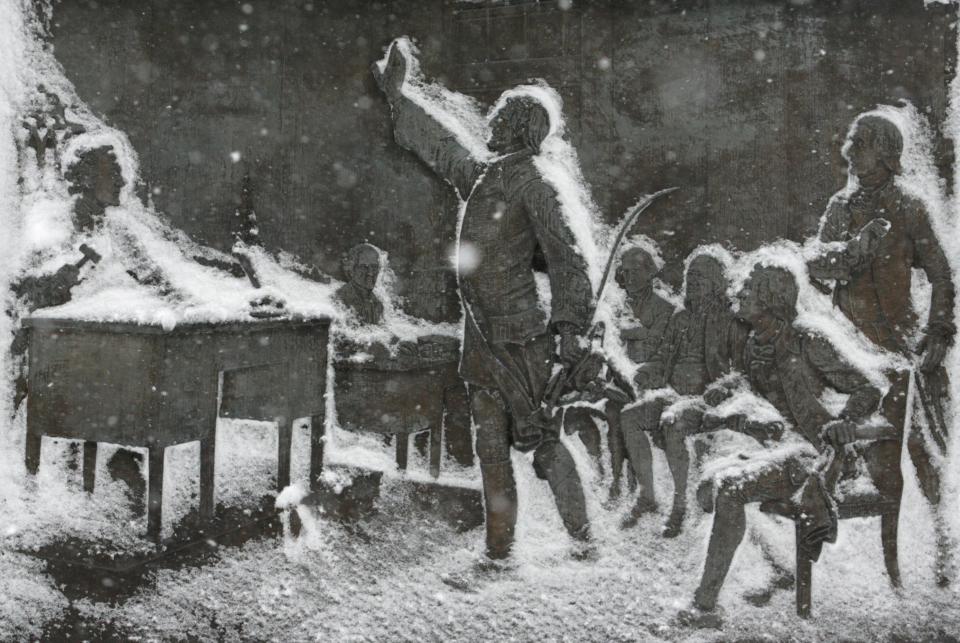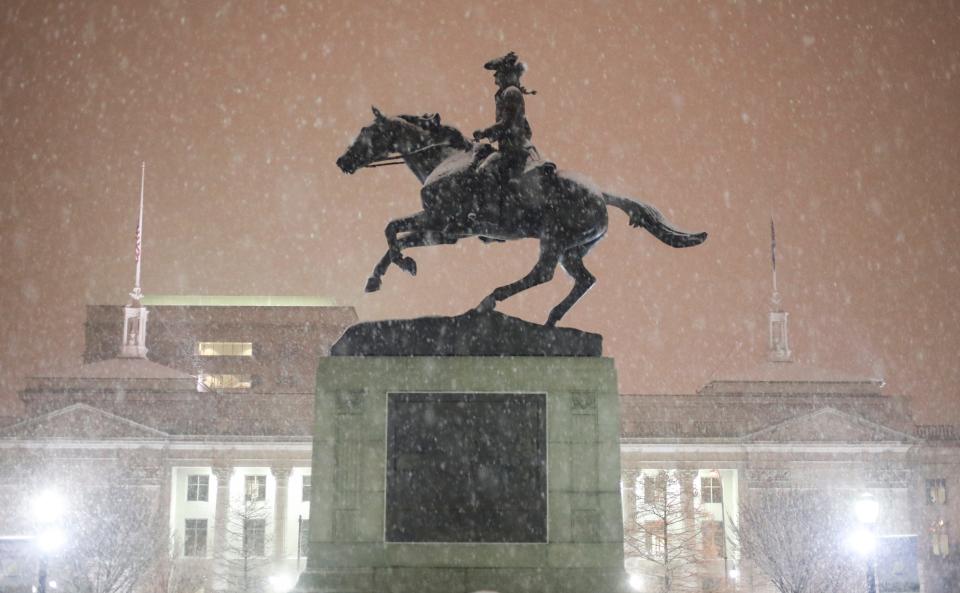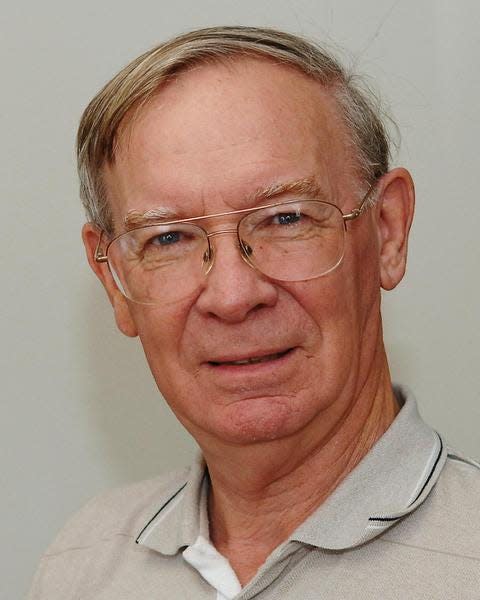'Caesar Rodney's ride': A 4th of July fraud not worthy of Delaware
- Oops!Something went wrong.Please try again later.
- Oops!Something went wrong.Please try again later.
When noted Delaware author George Alfred Townsend went to Georgetown for the Independence Day celebration in 1880, he was not going to be the main speaker.
The Wilmington Daily Republican reported on July 3, “The Grand Fourth of July celebration at Georgetown to-day will be a grand affair ... George Alfred Townsend will read a poem and Rev. J. S. Willis will deliver an oration.” Townsend may not have been the principal speaker, but his poem made faux history.
Born in Georgetown on Jan. 30, 1841, George Alfred Townsend’s father was the Rev. Stephen Townsend, who served Sussex County as a Methodist clergyman for more than half a century.

The Rev. Townsend’s son rose to national prominence on the basis of his vivid descriptions of the early battles of the Civil War for the New York Herald. While the war was still being fought, Townsend went to Europe, where his lectures enthralled audiences and confirmed Townsend’s skill as a storyteller.
After the end of the Civil War, he wrote a popular newspaper column under the nomme de plume “Gath” that further enhanced his reputation.
Townsend’s most famous fictional work was "The Entailed Hat," which was set partially in Sussex County during the early 19th century. The novel includes vivid descriptions of the area’s ironworks, slavery and the notorious Patty Cannon.
The blend of historically accurate detail, an imaginative fictional yarn and Townsend’s skill as a writer made "The Entailed Hat" a book that has enjoyed lasting popularity.
FOURTH OF JULY: Looking for Delaware, Maryland fireworks? Here is our list for 4th of July shows
When he spoke during the July 4th celebration at Georgetown, Townsend was determined to deliver a poem based upon the historic ride of Caesar Rodney and his critical vote on the Declaration of Independence.
In 1776, while the Continental Congress was considering the question of independence from Great Britain, news arrived in Philadelphia of a Loyalist uprising in southern Delaware. According to Townsend, after Rodney arrived in Lewes, he flirted with Sarah Rowland, who intercepted the dispatches from Philadelphia about the pending vote on the Declaration of Independence.
When he discovered Rowland’s plot, Rodney immediately hopped on his horse and scampered off to Philadelphia, where he arrived moments before the crucial vote was taken. Townsend’s poem and the Sarah Rowland yarn became an accepted part of southern Delaware lore.

The Pan-American Exposition held in Buffalo in 1901 has been largely remembered as the scene of President William McKinley’s assassination.
According to the Delaware Gazette and State Journal, however, the Delaware exhibit was one that was best forgotten. The newspaper commented that the state’s exhibit, “resulted in a ridiculous burlesque, to the shame and discredit of the State.” Delaware’s display “consisted of a few plates of rather measly looking fruit … this was not Delaware fruit, but was purchased in Buffalo.”
"When the fruit began to rot, it was replaced by “a large copy of George Alfred Townsend’s poem, ‘Caesar Rodney’s Ride,’ framed and ‘hung in a conspicuous place,’ with a scheme in contemplation for having copies of this production printed for free distribution.”
The newspaper went on to comment that in future expositions, the Delaware exhibit, “shall be of a creditable character, in every way worthy of the State and its history.”

Unfortunately, veteran columnist and historian Bill Frank has shown that Townsend invented the Sara Rowland story in a Rehoboth Beach hotel shortly before he read the poem in Georgetown. Like the rotten fruit that it replaced, it was a fraud, a burlesque and not worthy of Delaware and its history.
Principal sources
Daily Republican, July 3, 1880.
Delaware Gazette and State Journal, Aug. 22, 1901.
Poetical Addresses of Geo. Alfred Townsend, New York: E. F. Bonaventure & Co., 1881, pp. 34-42.
William P. Frank, Caesar Rodney, Patriot, Wilmington: Delaware American Revolution Bicentennial Commission, 1975, pp. 25-27.
Hal Roth, ed., George Alfred Townsend, The Entailed Hat, Vienna, Maryland, 2000, pp. 2-3.
Jerry Shields, Gath’s Literary Work and Folk, Wilmington: Delaware Heritage Press 1996, pp. 17-20.
DELAWARE CHANGES: Wilmington says Caesar Rodney statue won't return to Rodney Square amid park renovations
This article originally appeared on Salisbury Daily Times: 'Caesar Rodney's ride': A 4th of July fraud not worthy of Delaware

